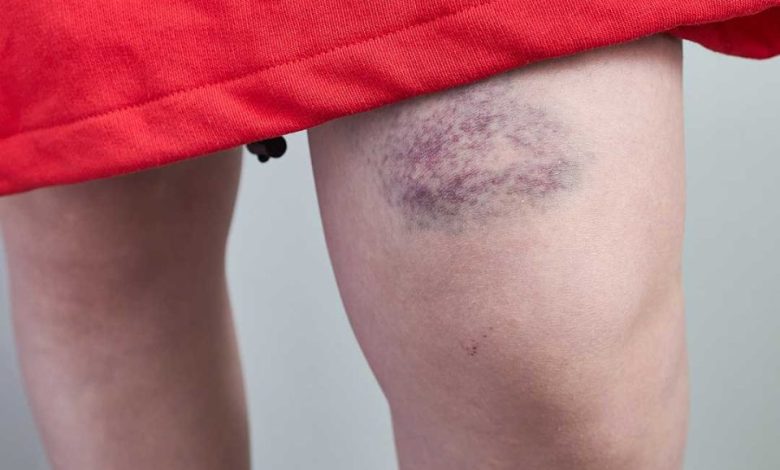Here’s why some people bruise more easily than others

Have you ever wondered why a gentle tap can leave you with a colorful bruise while others seem immune to such marks? The phenomenon of easy bruising is a common one, often sparking curiosity and concern. This article delves into the intricate reasons behind this perplexing issue, shedding light on the scientific factors at play.
ADVERTISEMENT
Understanding the Science Behind Bruises
ADVERTISEMENT
A bruise, medically termed a contusion, is essentially a visible sign of internal bleeding. When tiny blood vessels, or capillaries, rupture due to an impact, blood seeps into the surrounding tissues, creating the familiar purplish discoloration. However, the propensity for bruising varies significantly from person to person.
ADVERTISEMENT
Age: A Contributing Factor
As we age, our skin undergoes a natural transformation. It thins, losing the protective cushion of fatty tissue that safeguards delicate blood vessels. This age-related change, coupled with a decline in collagen—the protein responsible for skin’s elasticity—renders older individuals more susceptible to bruising.
Genetics: Nature’s Role in Bruising
Family history often holds clues to our susceptibility to easy bruising. If your relatives tend to bruise easily, chances are you might share this trait. Genetic predispositions can influence platelet function and the blood clotting process, impacting bruise formation.
Health Conditions and Medications: Potential Culprits
Certain medical conditions, such as anemia, hemophilia, and other bleeding disorders, can increase the likelihood of bruising. Additionally, medications commonly used to thin the blood, like anticoagulants and aspirin, can elevate bruise risk by interfering with the clotting process.
Nutritional Impact on Bruising
A balanced diet rich in essential nutrients is crucial for maintaining healthy blood vessels. Deficiencies in vitamins C, K, and bioflavonoids can weaken blood vessel walls, making them more prone to damage.
Taking Control of Easy Bruising
While easy bruising can be frustrating, several strategies can help minimize its occurrence:
- Prioritize Nutrition: Incorporate vitamin C and K-rich foods into your diet to bolster blood vessel health.
- Mindful Medication Use: If you’re on blood-thinning medication, adhere strictly to your doctor’s recommendations.
- Gentle Skin Care: Protect your skin from sun damage with sunscreen and keep it hydrated with moisturizers.
- Manage Chronic Conditions: Effective management of conditions like diabetes and hypertension can positively impact skin and blood vessel health.
- Protective Measures: Wear appropriate protective gear during activities that increase the risk of bumps and falls.
When to Seek Medical Attention
While occasional easy bruising is generally harmless, persistent or unexplained bruising, especially if accompanied by other symptoms, warrants a consultation with a healthcare professional.
By understanding the underlying causes of easy bruising and implementing preventive measures, you can take steps to minimize its impact on your daily life.




